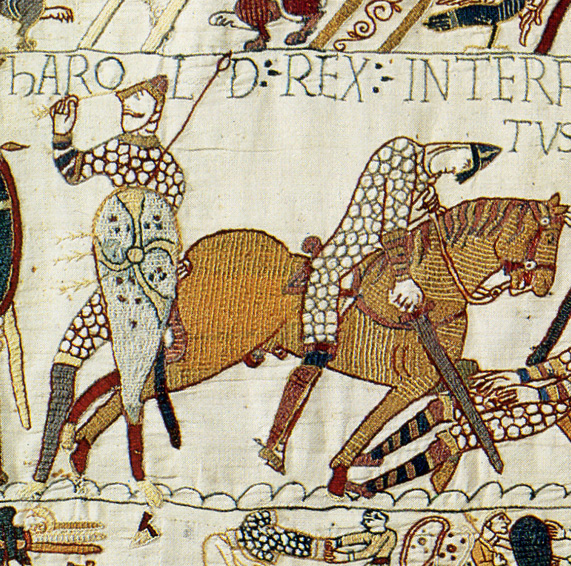Harold Son of Godwin
Classic Pamphlet

Reassessing Harold
To lecture on Harold Godwinson, earl of Wessex, King Harold II of England, in the year 1966 at Hastings is a presumption. We appear to know much about him, and yet in fact there are many gaps in knowledge. Much information, so plausible at first sight, proves unreliable on closer inspection. Edward the Confessor and William the Conqueror are both better subjects for the biographer. Harold had one disastrous attribute. He aroused the partisan feeling of the victorious side. The result is a variety and confusion in later assessments. One formidable shadow falls on all recent workers on Harold-that of the Victorian scholar Edward Augustus Freeman. Freeman's faults are well known. It is pleasing to see his virtues increasingly appreciated. The ability to tell a fine story, the rhetoric, the breadth of knowledge especially of the chroniclers, the accuracy in citation. But freeman is at his most unreliable in relation to Godwin and his son Harold. Godwin was credited with the qualities of William Ewart Gladstone-"endowed with all the highest attributes of the statesman... the great minister, the unrivalled parliamentary leader, the man who could sway councils and assemblies at his will'. Harold was equally idealised. Freemans view is summed up in the following eulogy, prompted by the thought that Harold may have been buried at Waltham, and that Edward I's body rested on the way south to Westminster:
"But for a while the two heroes lay side by side-the last and the first of the English kings, between whom none deserved the English name or could claim honour or gratitude from the English nation. The one was the last king reigned purely by the will of the people without any claim either of conquest ort of hereditary right. The one was the first king who reigned purely as the son of his father, the first who succeeded without competitor or interregnum. But each alike, as none between then did, deserved the love and trust of the people over whom they reigned. With Harold our native Kingship ends... In Edward the line of the English kings begins once more... All between them were Normans or Angevins, careless of England and hr people... the King with whom England fell greeted his first true successor in the king with whom she rose again. Such were the men who met in death within the now vanished choir of Waltham. And in the whole course of English history we hardly come across a scene which speaks more deeply to the heart, than when the first founder of our later greatness was laid by the side of the last kingly champion of our earliest freedom-when the body of Edward was laid, if only for a short space, by the side of Harold, the son of Godwine."
This resource is FREE for All HA Members.
Non HA Members can get instant access for £3.49

